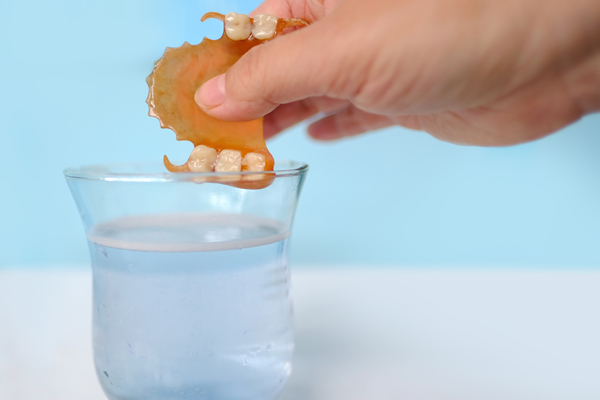What You Should Know About Implant-Supported Dentures

Implant-supported dentures are a great way to enjoy the many benefits associated with implants without having to hand over an arm and a leg. Talk to a dentist, and they will tell you that implants are the best replacement for a lost natural tooth.
Why choose implant-supported dentures?
Implants go way beyond improving the appearance of a person's smile. These devices replace the missing roots of the tooth that has fallen out, which prevents jawbone deterioration. This is usually what occurs when a person loses a tooth. The jawbone tissue that once held the tooth's roots in place begins to deteriorate, and that can lead to drastic changes to the person's face.
The one issue people sometimes have with implants is that it is the priciest option when it comes to replacing missing teeth. The cost of a single implant is often more than the price of other alternatives like dentures and implants.
So, why should people not simply go for the cheaper alternatives?
The thing is, dentures and bridges do nothing to preserve the patient's jawbone tissue. These devices help prevent other issues, like the remaining teeth shifting and creating gaps in their smile, but many patients do not want to have to worry about jawbone tissue deterioration.
That is where implant-supported dentures come in. These devices utilize four to six implants on each side of the patient's jaw to permanently attach a special set of dentures. The patient gets all the benefits associated with implants without having to get an implant for every lost tooth.
What to expect when getting implant-supported dentures
Once the patient has been deemed eligible for implants, a date will be set for their installation. During the procedure, the dentist will surgically attach implants into the patient's jaw. The patient is then given up to seven months for the implants to fuse properly with the tissue holding them in place. This fusion is called osseointegration.
Once the implants are securely fused, a special set of dentures is attached to them. There are different types of implant-supported dentures, but the most common are permanently attached to the implants. It is a benefit that anyone who has ever worn dentures will appreciate. The device is stable in the wearer's mouth, which is drastically different from traditional dentures, which tend to move around when worn.
Other benefits of implant-supported dentures include that they:
- Preserve the patient's jawbone tissue
- Prevent the remaining teeth from becoming misaligned
- Do not require any adhesives to keep it in place
- Do not require special care like traditional dentures
- Are significantly cheaper than getting implants for all missing teeth
Implant-supported dentures free you
With implant-supported dentures, there is no need to spend 20 minutes cleaning your prosthetic each night or constantly worrying about it slipping while you dine out. Call us and explore your options with one of our dentists if you have lost any of your natural teeth.
Let's get started …
Request an appointment here: https://www.queensfamilydental.com or call Queens Family Dental at (718) 690-9597 for an appointment in our Astoria office.
Check out what others are saying about our dental services on Yelp: Implant-Supported Dentures.
Recent Posts
When it comes to replacing a full dental arch with implant supported dentures, patients often have many questions about the process. This article answers some commonly asked questions about implant dentures.The structure of implant supported dentures is exactly as the name sounds; a full denture supported by dental implants. The implants are titanium posts placed…
Dentures are one of the most affordable ways to replace missing teeth. Traditional dentures are designed to rest on your gums, but there is now a more secure option known as implant-supported dentures. These dentures are attached to dental implants in your mouth rather than resting them on your gums.Implant-supported dentures are typically used when…
Partial dentures are a great tooth replacement option for missing teeth. They are easier on the mouth than full dentures but not as costly as dental implants. Those that wear partial dentures can expect an easier eating experience, better speaking and an aesthetically pleasing smile. However, with partial dentures comes discipline, meaning the wearer must…
Partial dentures are an excellent option for people looking to replace their missing teeth. They may even be good options for people who don’t yet realize it, like those with gum disease or decaying teeth. We will start by explaining how dentures work, then look at when a dentist may consider using them.They are fake…


